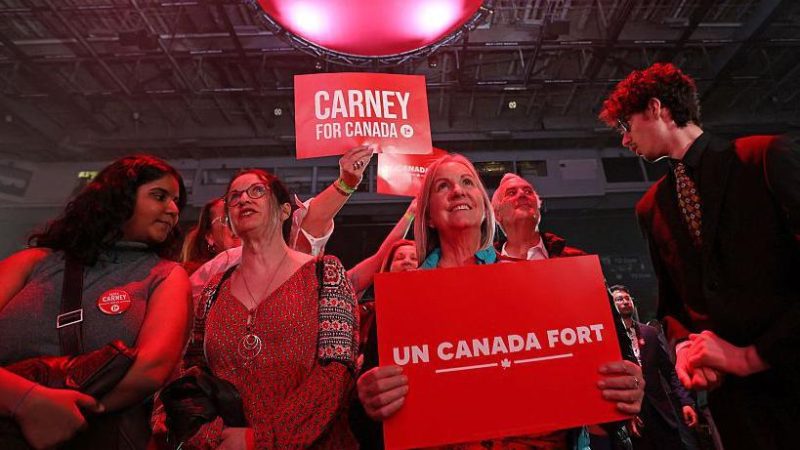
Prime Minister Mark Carney’s Liberal Party secured a projected victory in Canada’s federal election, a result significantly shaped by the backdrop of escalating tensions with the United States. The election, held on Monday, saw the Liberals garner a substantial lead, with 48% of the vote based on early projections, significantly ahead of Pierre Poilievre’s Conservative Party at 39%. While a clear path to victory is apparent, the final seat count remains uncertain, leaving open the question of whether the Liberals will achieve a majority in Parliament.
The outcome marks a surprising turn in the political landscape. Months prior to the election, polls consistently favored the Conservatives by a considerable margin—up to 20 points. This shift began early in 2025, coinciding with several pivotal events: the resignation of Justin Trudeau, Carney’s subsequent appointment as Liberal leader and Prime Minister, and the return of Donald Trump to the White House, bringing with it renewed threats of trade wars and even annexation.
Carney, a former governor of the Bank of England and Bank of Canada, swiftly called for snap elections after his appointment. He boldly challenged Trump, declaring an end to the decades-long “special relationship” between the two countries. His campaign effectively positioned him as the best candidate to navigate the challenging economic and social climate, compounded by Trump’s aggressive stance. His financial expertise became a key selling point, contrasting with his lack of prior political experience.
Many analysts believe that Trudeau’s declining popularity over his decade in office created an opening for Carney. Shachi Kurl, president of the Angus Reid Institute, suggests that Trudeau’s unpopularity released pent-up frustration among Liberal voters, many of whom were considering voting for the NDP or even the Conservatives. Trump’s aggressive actions towards Canada further galvanized voters, pushing centrist and left-leaning Canadians to support Carney as the best defense against potential economic and political harm.
The election results appear to be a testament to the unpredictable nature of modern politics. While Carney’s victory is significant, the path forward remains uncertain. The continuing trade war with the US and the potential for further escalation pose substantial challenges for the incoming Prime Minister. His financial background makes him uniquely suited to handling such crises, but his political inexperience is a factor to consider. This election highlights the unexpected ways in which international relations can influence domestic politics, and the power of a strong, decisive response to external threats.
Carney’s unique background—a technocrat with a proven track record in navigating global financial crises—became a key asset. His experience guiding Canada through the 2008 recession and later serving as the first non-British governor of the Bank of England provided a strong counterpoint to his political naiveté. His campaign focused on winning the trade war with the US and maintaining economic stability, while also addressing environmental sustainability with a more moderate approach than his predecessor. He ultimately presented himself as a pragmatic leader, capable of balancing seemingly conflicting priorities.









